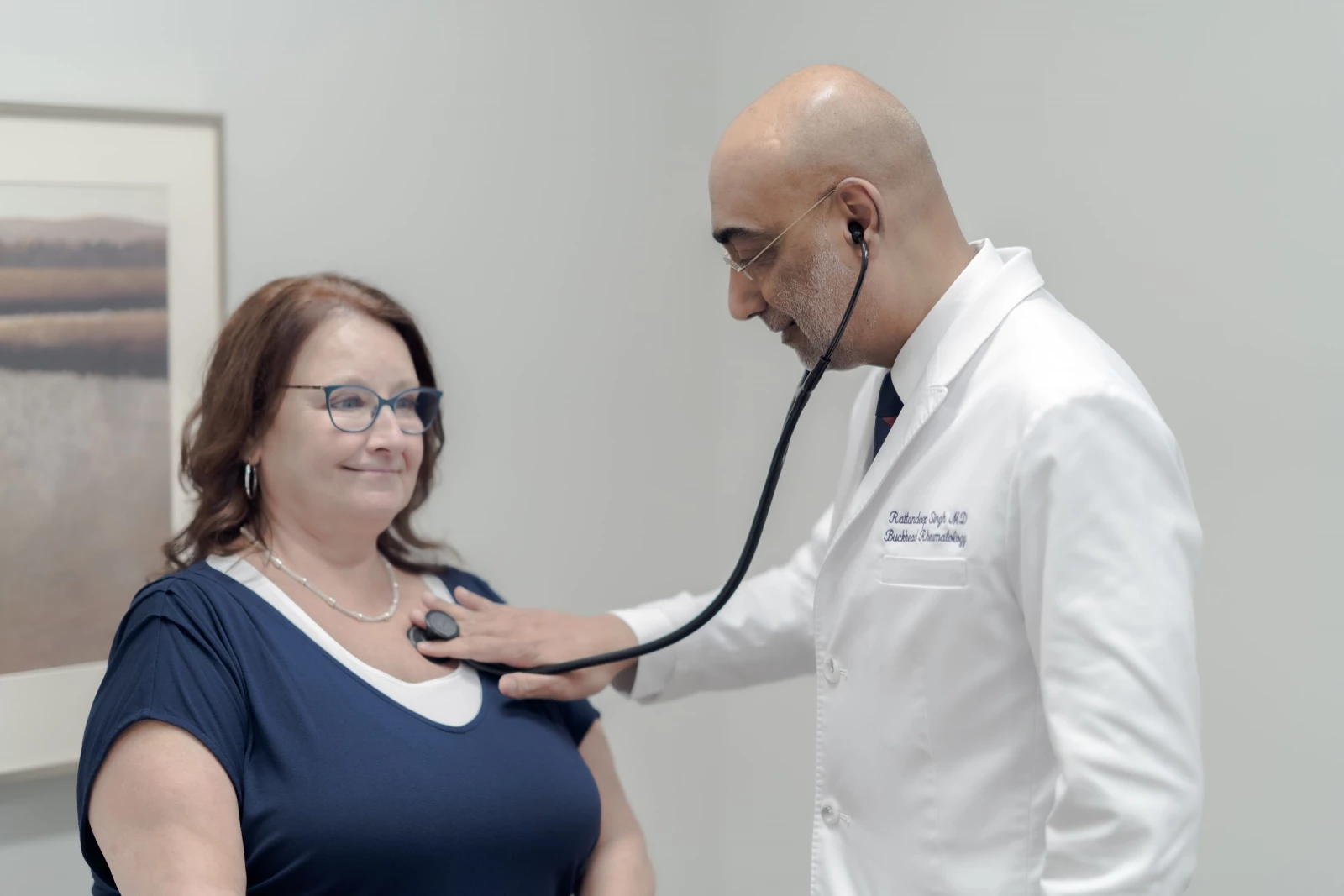Spondyloarthropathy refers to a group of chronic inflammatory rheumatic diseases that primarily affect the axial skeleton (spine and sacroiliac joints) and, in some cases, peripheral joints.
These conditions are characterized by inflammation, pain, and progressive joint damage.

What Are the Signs/Symptoms?
-
Inflammatory Back Pain: Pain that improves with activity and worsens with rest.
-
Peripheral Arthritis: Typically asymmetric and affects lower extremities.
-
Enthesitis: Inflammation at sites where tendons or ligaments attach to bone, such as the Achilles tendon.
-
Dactylitis: Swelling of an entire finger or toe, also known as “sausage digits.”
-
Extra-articular Manifestations: Includes uveitis (eye inflammation), psoriasis, and inflammatory bowel disease.
What Are Common Treatments?
Management aims to reduce symptoms, improve function, and prevent complications:
-
Medications
-
Nonsteroidal Anti-inflammatory Drugs (NSAIDs): First-line treatment for pain and inflammation.
-
Disease-Modifying Antirheumatic Drugs (DMARDs): Used for peripheral arthritis (e.g., methotrexate, sulfasalazine).
-
Biologics: TNF inhibitors (e.g., etanercept, infliximab) and IL-17 inhibitors (e.g., secukinumab) for severe cases.
-
-
Physical Therapy
-
Exercises to maintain spinal mobility and posture.
-
Strengthening and stretching routines to reduce stiffness.
-
-
Lifestyle Modifications
-
Regular exercise to improve joint function.
-
Smoking cessation, as smoking can worsen symptoms.
-
A healthy diet to support overall well-being.
-
-
Surgical Modifications
-
Rarely needed but may include joint replacement or spinal correction surgery in severe cases.
-
Living with Spondyloarthropathy
Living with spondyloarthropathy can be both physically and emotionally challenging. Symptoms such as chronic back pain, joint stiffness, and fatigue can interfere with daily activities, making it difficult to maintain routines and enjoy life fully. Over time, inflammation can lead to reduced mobility and deformities if not properly managed. Emotional well-being may also be impacted, as coping with a long-term condition can cause stress or feelings of isolation.
However, with a combination of medical treatments like anti-inflammatory medications, physical therapy, lifestyle adjustments, and support networks, many individuals find ways to manage symptoms effectively and improve their quality of life. Staying active within one’s limits, practicing stress-relief techniques, and maintaining open communication with healthcare providers are essential for living well with spondyloarthropathy.
Contact us today to book a consultation.
 Call 404-355-1799
Make an appointment
Call 404-355-1799
Make an appointment
- Sat & Sun
- Closed
- Mon - Thu
- 8 am - 4 pm
- Fri
- 8 am - 3 pm

Make an Appointment
At this time we only take appointments by phone or with a doctor's referral. If you would like to schedule a visit, please give us a call at 404-355-1799.
You make also fax the office at 404-355-4788. Please note we are open Monday - Thursday from 8 am - 4 pm, Friday from 8 am - 3 pm and closed on Saturday & Sunday.
Our address is 371 East Paces Ferry Rd NE, Suite 525 Atlanta, GA 30305.
